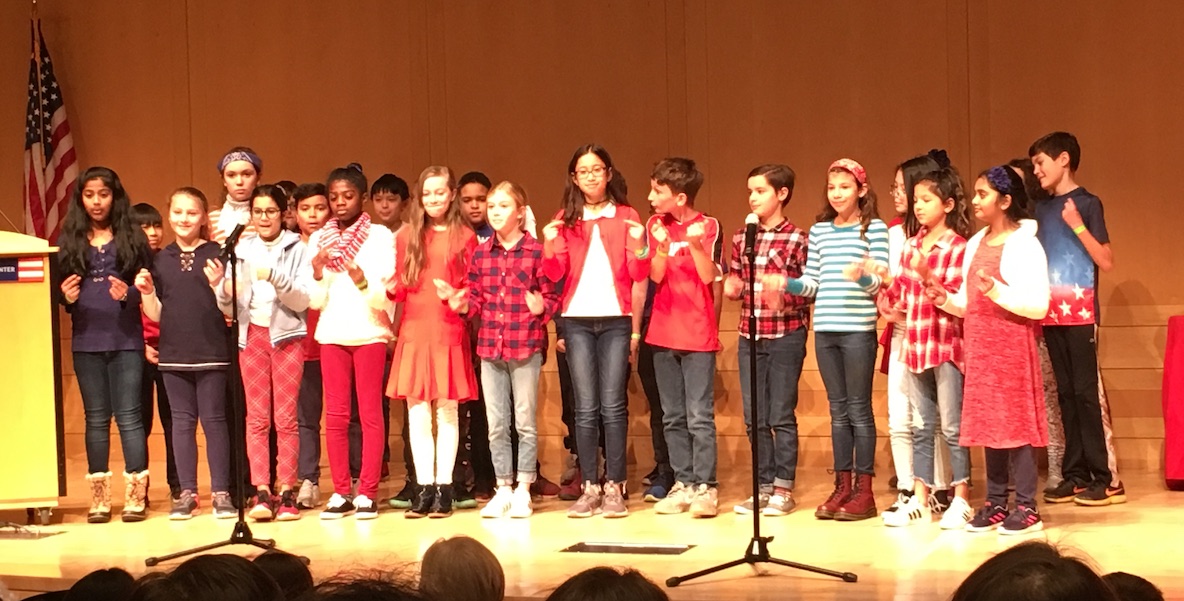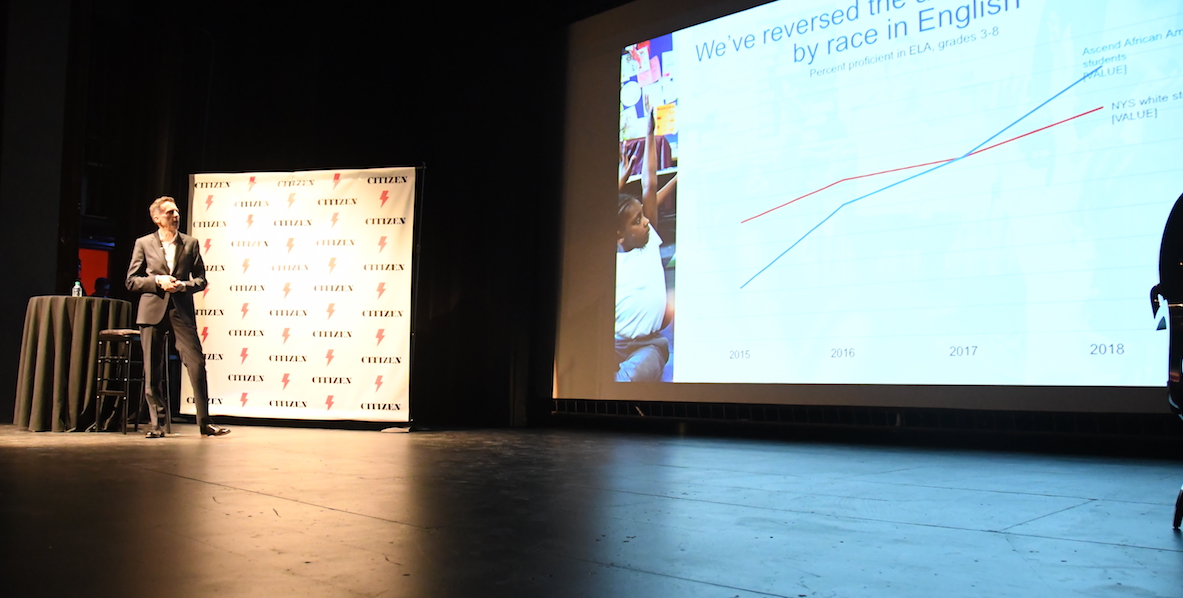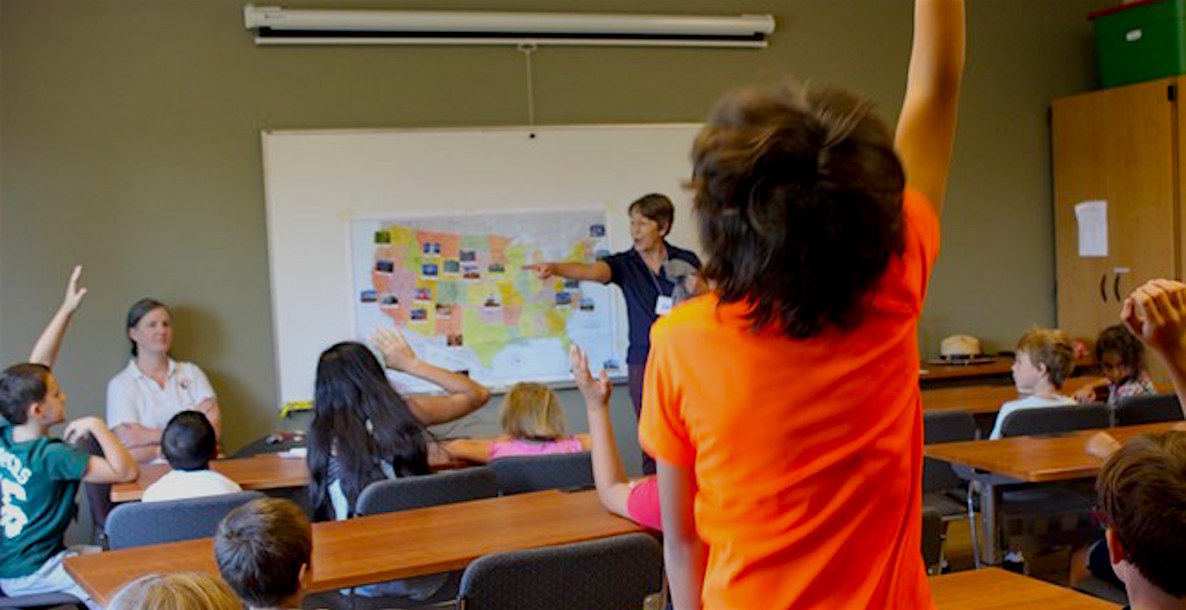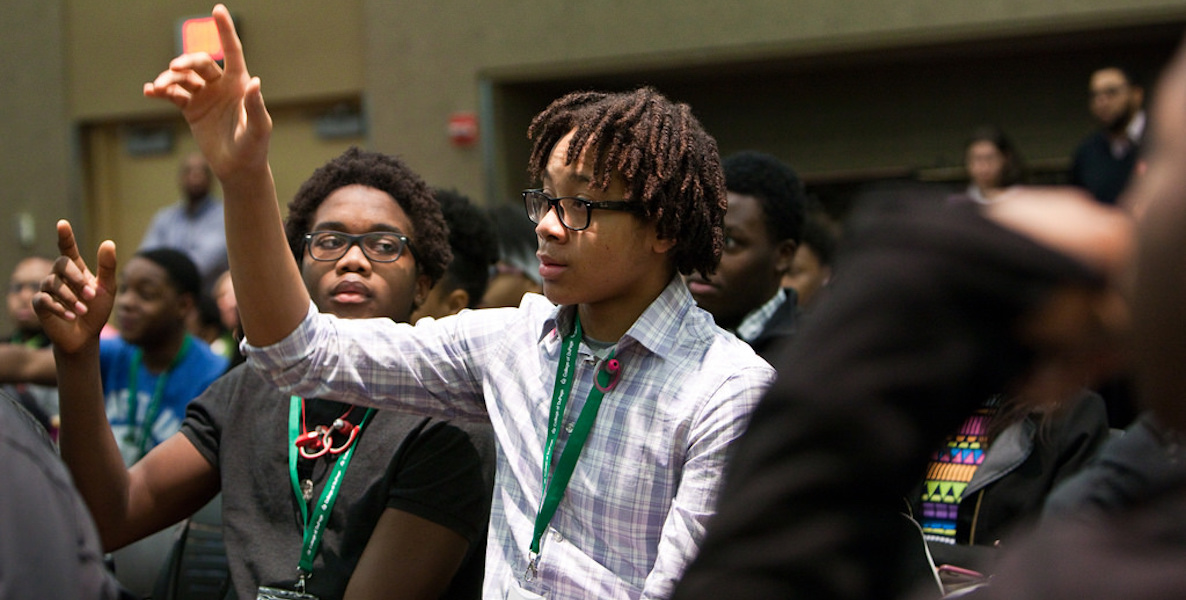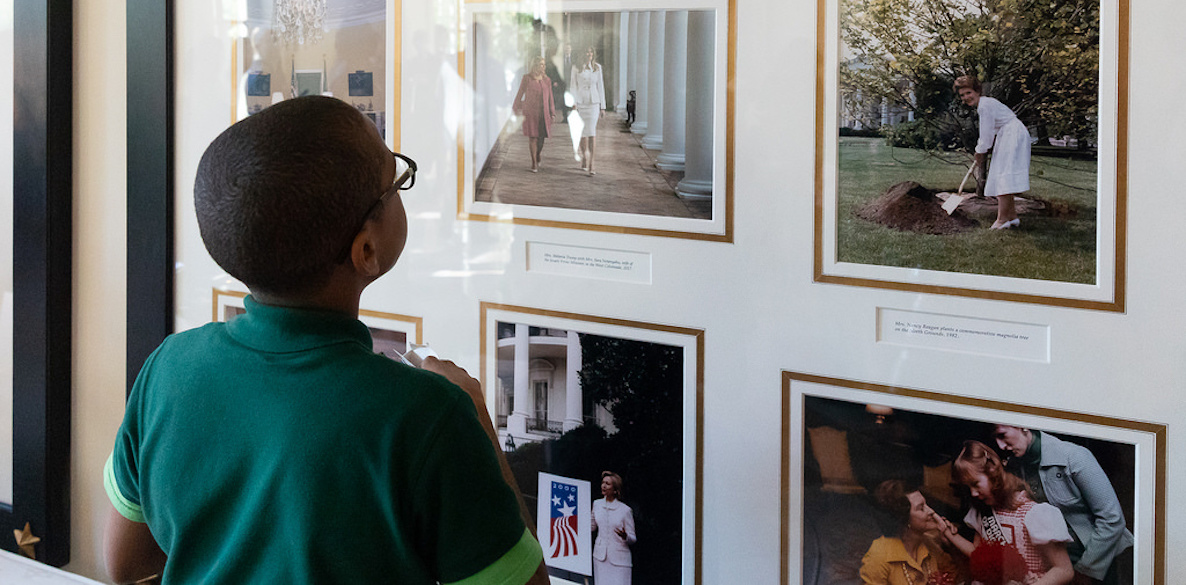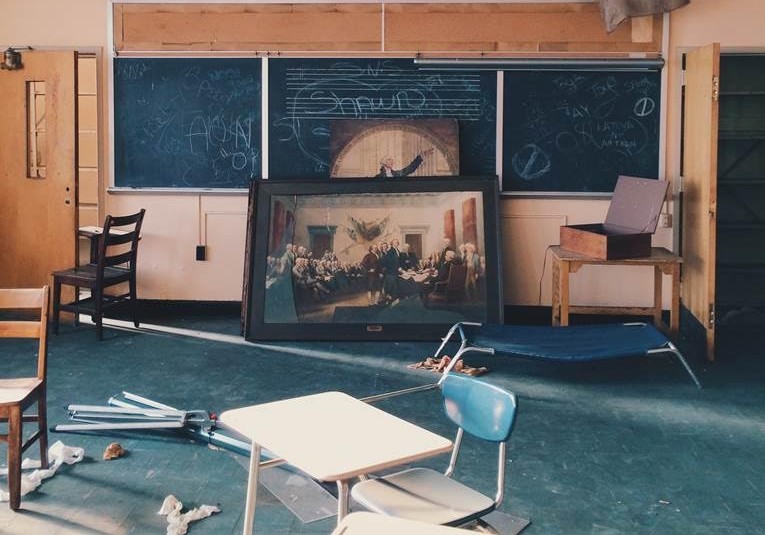Teacher expectations for high school seniors’ spring semester are notoriously low. But Molly McKay Bryson’s “action civics” class at Massachusetts’ Dearborn High School proved to be the exception. Up until two weeks before graduation, McKay Bryson’s students were hard at work implementing a “peer mediation” program they had developed, and that had been approved by school leadership, to ensure younger students and staff would keep it going after they moved on.
McKay Bryson, a humanities teacher who uses a participatory approach to engage students, encouraged her class to select an issue of importance to them. They chose to focus on the high student suspension rate and the lack of a student voice in discipline matters. Their research uncovered a school to prison pipeline reality they hadn’t understood before. This led to a meeting with the Boston Student Advisory Council which revealed how traditional punishment often leads to negative effects on students’ lives for years to come. In learning about various non-punitive, restorative models, the class chose to advocate for a peer mediation program at a state-wide Civics Day event at the Massachusetts Statehouse where they shared their idea with representatives from the Sheriff’s Office, lawyers, and political representatives.
It was civic engagement at its most potent: Local, relevant, and grassroots. And it showed the Dearborn students and their families, mostly immigrants of color, what their democracy allows them to do.
The law places Massachusetts alongside a handful of other states that are in the vanguard of a growing national movement that may be the key to preserving our American democracy: teaching civic engagement to school students.
“The opportunity for students to present their proposals to a group of civic and grassroots leaders, school administrators, and politicians was an incredibly powerful experience,” McKay Bryson says. “They see how this civics class opened doors for so many opportunities.”
Some version of the Dearborn program will soon be replicated statewide in Massachusetts, as part of a new law to ensure that the public school system provides its youth with the basic skills and confidence to become informed and active citizens. In addition to teaching American history and civics education, the Massachusetts law requires all public schools to provide students with student-led civics projects, like the one at Dearborn. It also establishes a Trust Fund to provide professional development to teachers, prioritizing underserved communities in “school districts with high concentrations of economically disadvantaged students.”
![]()
The law is arguably the boldest the country, placing Massachusetts alongside a handful of other states, notably Florida and Illinois, that are in the vanguard of a growing national movement that may be the key to preserving our American democracy: teaching civic engagement to school students. It goes significantly further than Pennsylvania’s Act 35, which has mandated a civics exam for graduation by 2021, in ensuring not only that students can pass a test on how their government works, but also understand their part in shaping that government and its policies.
“When fully implemented, this law will help young people, particularly students of color and those living in underserved, under-resourced districts, gain the skills to make the change they want to see in their communities and not just memorize the facts,” says Dana Harris, Advocacy Director for Generation Citizen, one of the civics education, school districts and research institutions that supported the new legislation as part of the Massachusetts Civic Learning Coalition. “The law equips, and will motivate, students for a lifetime of active, engaged citizenship.”
The Massachusetts law and others like it addresses a disturbing reality. In January 2017, 35 percent of Millennials said they were losing faith in American democracy, and just 25 percent were confident in the democratic system. Over half the school principals, assistant principals and other school leaders nationwide say that schools don’t focus enough on civics education. And a growing number of school district superintendents, 74 percent, express concern about their ability to effectively prepare students for engaged citizenship. Only 10 states actually require teachers of civics or government to be certified in the subject.
“The momentum for citizenship learning has definitely picked up,” Judge Marjorie Rendell says. “This momentum is not just a cerebral thing, but an emotional one as well. Increasingly, I hear from individuals who are fearful for our democracy and want to know what they can do.”
And the stats are even more stark among students of color: African American and Hispanic students are twice as likely as their white counterparts to score below proficient on national civics assessments. Fifty percent of Latino 12th graders and over 60 percent of black 12th graders do not even have a “basic” understanding of government, according to a 2016 UNC-Chapel Hill study. A similar civic knowledge gap exists between wealthier and poorer students.
In November, a group of Rhode Island public school students and parents alluded to this when they filed a federal lawsuit against the state, arguing that failing to prepare children for citizenship violates their rights under the United States Constitution. A New York Times article noted that the suit argues the state has not equipped all of its students with the skills to “function productively as civic participants” capable of voting, serving on a jury and understanding the nation’s political and economic life. The lawyers for the plaintiffs hope the case will have implications far beyond Rhode Island, and potentially prompt the Supreme Court to reconsider its 45-year-old ruling that equal access to a quality education is not a constitutionally guaranteed right.
The lawsuit aims to spread nationwide what states like Massachusetts have recognized: That young people who know more about government are more likely to vote, discuss politics, contact the government, and take part in other civic activities. Students who receive effective civic learning are four times more likely to volunteer and work on community issues, and are more confident in their ability to speak publicly. This holds even when controlling for income and race. This is something Pres. Obama acknowledged in 2015 when he signed into law the Every Student Succeeds Act, which (among other things) requires states to develop a plan for civics ed.
![]()
“In far too many places around the country, civics curricula hasn’t been updated for the 21st century and is taught more by rote,” says Ted McConnell, Executive Director of theCampaign for the Civic Mission of Schools. “New policies must go beyond mandates to add courses and testing. They must also support professional development; attend to the quality of curricula and assessments; and use data and evidence for continuous improvement.”
“Student-led civics projects” like those in the Massachusetts law reflect a practice called “Action Civics,” first coined by Mikva Challenge, a nonprofit active in Chicago and Washington D.C., that has been adopted by other organizations like Generation Citizen, and is currently operating in nearly 500 schools around the country.
Like McKay Bryson’s class, students through Action Civics learn firsthand about the political system, the process of identifying problems, assessing their causes and developing the skills to address them. At Dearborn and a number of Boston public schools, Generation Citizen supports teachers with action civics curricula, university student coaching, staff support to make connections to local authorities (like the Sheriff’s Office), and the convening of Civics Day events like the one held last spring at the Massachusetts State House.
Generation Citizen, which has joined over 50 other organizations in the iCivics led CivX Now Coalition, intends to build upon the momentum created by the Massachusetts legislation to “ensure every student in America receives an action civics education,” according to Harris. Since education policy is set at the state level, the outcomes will look different case by case. Her organization, working closely with state governments, education departments, and local civic organizations is currently active in Rhode Island, NYC, the Bay area, Oklahoma and central Texas, and is about to build up in several other states.
In the aftermath of the shooting at Marjory Stoneman Douglas High School last February, Florida’s 2018 seniors, the first class to graduate after the full implementation of the Act began, have emerged as eloquent advocates for political change at the local, state, and national level.
Here in Pennsylvania, Act 35, which passed the legislature in 2018, mandates that schools administer a civic knowledge assessment once between the 7th and 12th grades, beginning in the 2020-21 school year. Each district has the freedom to develop their own test, and can draw on assistance offered by nonprofits like Philly’s Need in Deed, the National Liberty Museum, and the Rendell Center for Civics and Civic Education that work with individual teachers to encourage civic engagement among students.
But there is no mandate that calls for active civic learning to reach all students in the city, or the state, the way there is in places like Florida, which adopted the Sandra Day O’Connor Civic Education Act seven years ago. The Act prescribes a civics class in seventh grade with a mandatory test, required to graduate from middle school, and additional civics instruction in high school. The state also funded ongoing teacher professional development.
Test scores suggest the initiative in Florida is having a positive impact, but the more compelling evidence is what happened in the aftermath of the shooting at Marjory Stoneman Douglas High School last February. Florida’s 2018 seniors, the first class to graduate after the full implementation of the Act began, have emerged as eloquent advocates for political change at the local, state, and national level.
“The momentum for citizenship learning has definitely picked up,” Judge Marjorie Rendell says. “This momentum is not just a cerebral thing, but an emotional one as well. Increasingly, I hear from individuals who are fearful for our democracy and want to know what they can do. Civics education, particularly when you actively engage students early, in the 4th or 5th grades, is now on the front burner after being on the back burner for so long.”
As Justice O’Connor once said: “The practice of democracy is not passed down through the gene pool. It must be taught and learned anew by each generation of citizens.”



